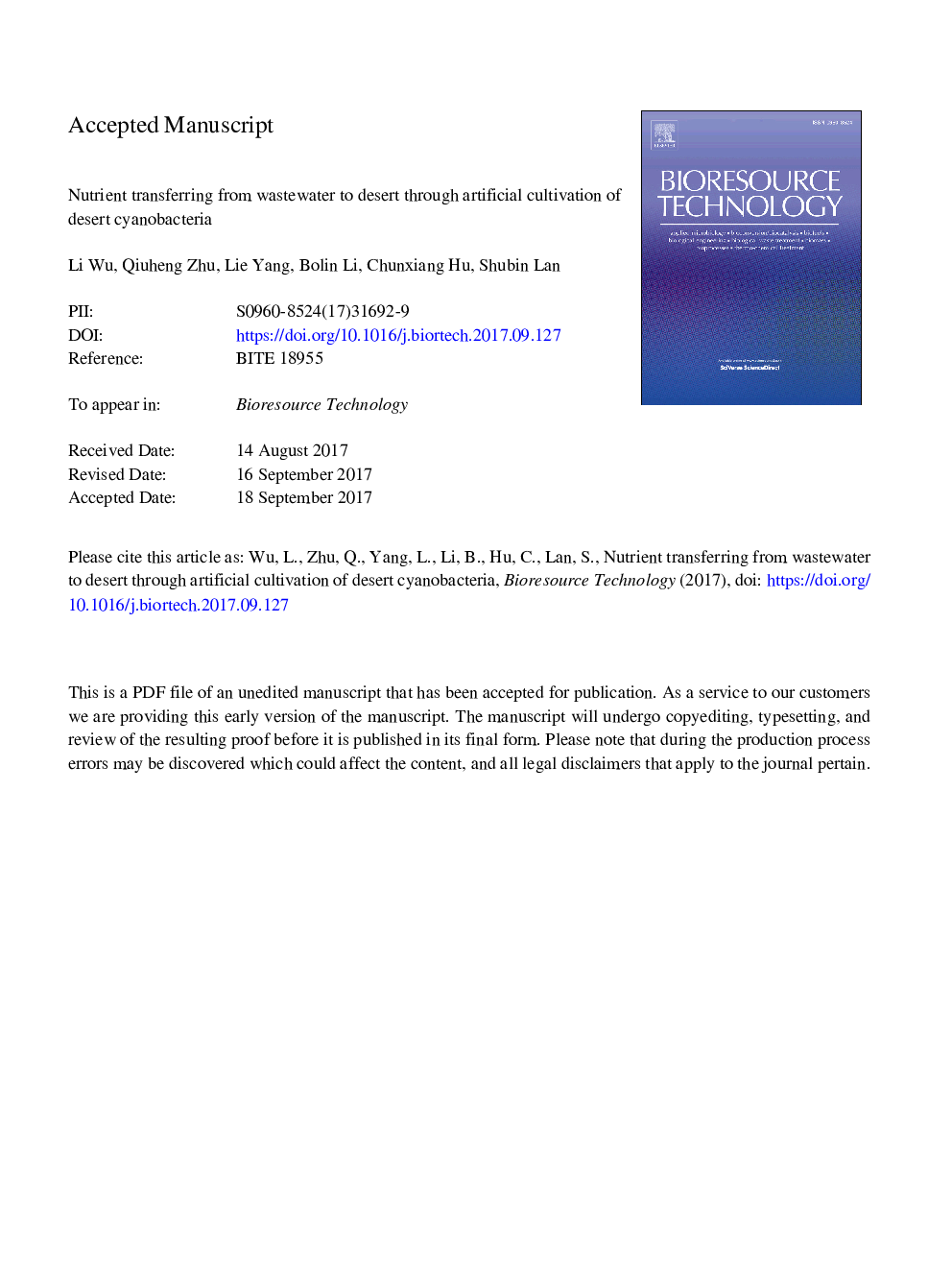| Article ID | Journal | Published Year | Pages | File Type |
|---|---|---|---|---|
| 7069555 | Bioresource Technology | 2018 | 37 Pages |
Abstract
Realizing the reasonable allocation of resources is possible to solve the dual problems of resources and environment. Therefore, in this study desert cyanobacterium Scytonema javanicum was cultivated in artificial synthetic wastewater to explore the feasibility of nutrient transferring from wastewater to desert. After inoculation, S. javanicum grew well in the wastewater; nitrogen and phosphorus were gradually removed from the wastewater. In general, cyanobacterial biomass, exopolysaccharide content, COD, nitrogen and phosphorus contents were all significantly affected by the cultivation time, wastewater dilution treatment and their interaction (P < 0.001). Comprehensively considering the producing period, biomass accumulation and nutrient removal efficiency, cultivation time of cyanobacterium S. javanicum in the synthetic wastewater should be controlled around 20 days, with wastewater dilution ratio at 1:1. Conclusively, desert cyanobacterium S. javanicum is a promising species for nutrient transferring from wastewater to desert, and its maximum biomass yield could reach 3.91 mg Chl-a Lâ1 in the synthetic wastewater.
Related Topics
Physical Sciences and Engineering
Chemical Engineering
Process Chemistry and Technology
Authors
Li Wu, Qiuheng Zhu, Lie Yang, Bolin Li, Chunxiang Hu, Shubin Lan,
